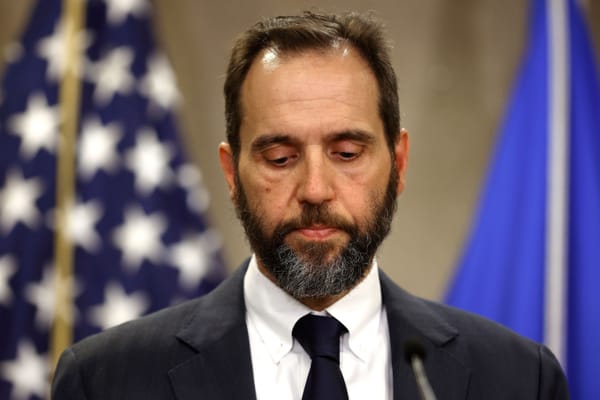The most intriguing question—legal, political, and moral—about the Trump indictment can best be understood through the vehicle of several hypotheticals: What if a white Southern prosecutor announced that he would only investigate crimes committed by blacks; he then devoted all of his resources to looking for black crimes and none to white crimes; as a result he uncovered evidence of a crime committed by a black citizen.
Would the selective prosecution of the black person be legally valid under the equal-protection clause of the Constitution? Would it be morally acceptable? Would it depend on the nature and seriousness of the crime? Would it depend on whether similar crimes had been committed by whites and not prosecuted?
Now change the hypothetical slightly. It is a prosecutor elected on the Democratic ticket or appointed by a Democrat; he announces that he will investigate only crimes committed by Republicans; and his selective investigation turns up a crime committed by a Republican.
Finally, a third and most relevant, “hypothetical”: a prosecutor elected or appointed by Democrats announces that he is focusing his investigation on the leader of the Republican Party, who is running against the incumbent Democratic president; and his selective investigation uncovers an actual crime by that Republican.
“It seems clear that Donald Trump has been and is being targeted.”
It’s the third hypothetical that troubles many objective observers, including moderate Democrats as well as Republicans, because it seems clear that Donald Trump has been and is being targeted. In 1940, Supreme Court Justice Robert Jackson warned against such selective targeting:
With the law books filled with a great assortment of crimes, a prosecutor stands a fair chance of finding at least a technical violation of some act on the part of almost anyone. In such a case, it is not a question of discovering the commission of a crime and then looking for the man who committed it, it is a question of picking the man and then searching the law books, or putting investigators to work, to pin some offense on him.
Some will argue that regardless of the means used, special counsel John Smith did uncover evidence—some out of Trump’s own mouth and the mouths and pens of his lawyers—that proves his guilt. Would they make the same argument about strong evidence uncovered by the racist prosecutor who only investigated black (or Jewish, or gay, or Catholic, or Muslim) crime? If not, how would they distinguish the cases?
Would they deny that Trump was targeted? Both Manhattan DA Alvin Bragg and New York Attorney General Letitia James campaigned on “get Trump” platforms, and special counsel Smith was assigned a specific target: namely, Donald Trump. Would they argue that racial targeting is worse than partisan political targeting? Would they assert that Trump deserved to be targeted?
Would they condemn the targeting and perhaps punish the targetors, but at the same time prosecute the guilty targeted person?
These are issues worthy of serious debate in a society committed to equal justice. As Smith said in his post-indictment news conference: “We have one set of laws in this country, and they apply to everyone.” But Smith’s job isn’t to apply the law equally to all. It is to investigate only one person and to indict and prosecute him if the selectively obtained evidence warrants it—regardless of whether others may have committed comparable crimes.
I have long opposed the appointment of special counsel to investigate and prosecute targeted individuals. Just as to a hammer, everything looks like a nail, so to a special prosecutor, evidence points to his target. Investigating events—such as Iran-Contra—is different. Had Smith been appointed to probe the mishandling of classified material by all former high-ranking officials—not just Trump, but also President Biden, former Vice President Mike Pence, and former Secretary of State Hillary Clinton, among others—and had found that only Trump violated the law, then he could credibly say that the law applies equally to everyone. But by investigating only one such official and prosecuting him without any comparison to others, his claim of equal justice rings hollow.
Moreover, Smith went further than other prosecutors in seeking to vitiate the lawyer-client privilege. The judges have supported him—mistakenly in my view—and much of his case rests on disclosures made by Trump’s lawyers. Other subjects of investigations haven’t had their confidential communications challenged under comparable circumstances. This too raises questions about the equal application of the law.
So the questions raised by the indictment of Trump go beyond whether the evidence gathered against him rises to the level of prosecutable crimes; they raise issues of process and equal justice. Some of these issues may be tried in a court of law. But even those that don’t raise justiciable claims may raise moral and political concerns that should be subject to debate in the court of public opinion.
